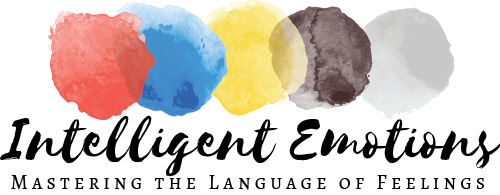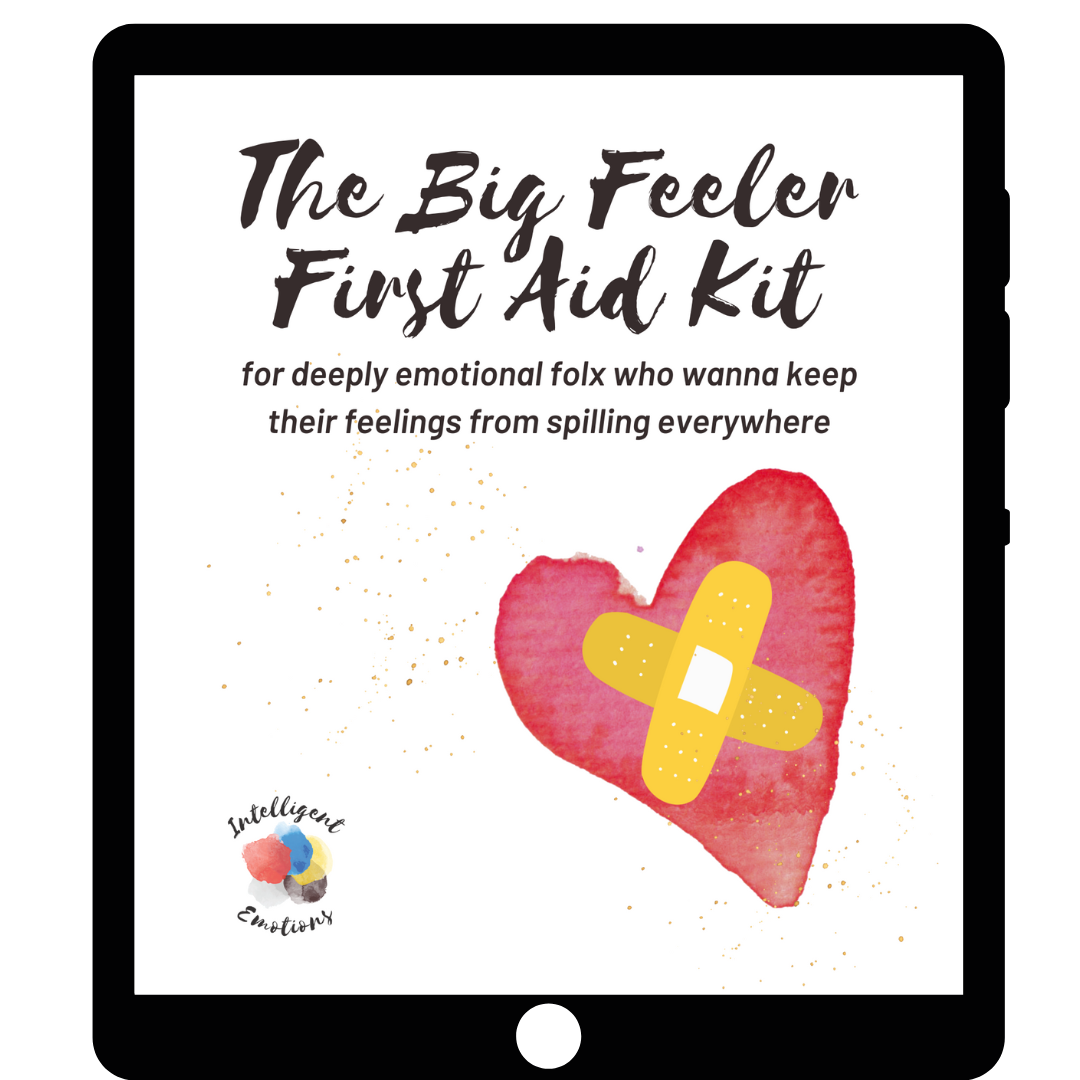Pride and Shame: Flipsides of the Same Coin
DISCLAIMER: The word “Pride” in this blog is using the definition of arrogance or contempt towards others (“I am BETTER that others”, I am immune to messing up), NOT the confidence and self-respect derived from one’s own inherent identity and worthiness (“I am JUST AS WORTHY as everyone else”).
I deeply happy to be queer and am 1000% supportive of all who identify as LGBTQ+. To make sense of this blog, swap out the word “pride” for “arrogance”.
Pride and Shame are not Opposites
Pride and shame are common emotions that everyone experiences from time to time. But contrary to what you may think, these feelings are not opposites.
Shame can be the root of many other emotional and relational issues, such as anxiety, jealousy, or impostor syndrome. More times than not, many believe that building up self-pride is the antidote to shame, misconceiving these emotions as opposites.
Instead of being opposites, pride and shame are flipsides of the same coin, since both are exaggerations of the self.
PRIDE is seeing oneself as better than one actually is.
SHAME is seeing oneself as lesser than one actually is.
Neither pride nor shame reflects who the person ACTUALLY is; rather they are both distortions.
Where PRIDE is, There is also SHAME
Take the typical narcissist as an example. A narcissist is generally seen as someone who is prideful, who places himself above others, as if he’s superior. What doesn’t often cross people’s minds is that the narcissist is an incredibly SHAME-oriented person. The root cause of pride IS shame.
On a more common scale, consider bullies in the schoolyard or workplace. They appear prideful and better than others: “What I say about myself is weightier than what you say about me. I just say I’m better than you.”
But in order to make themselves bigger, they make others smaller and tear them down SO THAT they themselves don’t feel so small.
Within the core of a bully or narcissist, there is such fragility in their sense of self that he NEEDS to make himself seem BIGGER than he actually is, to compensate for how SMALL he feels on the inside.
A person who really knows himself (i.e., someone who is secure in their self-worth) does NOT need to boast or announce to the world how great he is. He NOT need to put others down, nor see others as adversaries to conquer. Hence, pride indicates the presence of shame.
(The difference between a true narcissist and someone who isn’t quite one but is still pride/shame-oriented is that the former is in incredibly strong denial that they operate this way. The rest of us are still capable of being in the latter if we don’t do our personal work of truly getting to know ourselves.)
Where SHAME is, There is also PRIDE
What about the other way around? How can shame be the same thing as pride?
Most of my clients get stuck in “the shame spiral” and have a hard time advocating for themselves because they see themselves as lesser.
Consider someone who has incredibly low self-esteem and lives life like Eeyore, someone who:
Thinks that they’ll ALWAYS be stuck here or NEVER get to where they feel like they should be.
Poopoos out or dodges others’ compliments (“It was nothing.” “I was just lucky.” “It was because this other person helped me.”)
Declines invitations (“Why would anyone want to hang out with me? I’m so negative.” “They probably meant to invite someone else. It was an accident or mistake.”)
Shoots down opportunities (“This would be wasted on me.” “I’ll probably f*ck it up.” “I’m not going to get anywhere anyway.”)
Sound like you or someone you know?
A person who is rigidly stuck in shame is someone who is SO CONVINCED that they’re worthless that any message or event that says otherwise - a compliment, a celebration, an honoring - is made to submit under her own self-evaluation. In other words, HER WORDS RULE OVER ALL, as if an edict from a ruler (i.e., someone who reigns over others): “What I say about myself is weightier than what you say about me. I just say I’m worse than you.”
Sometimes, in some cultures or social contexts, shame can actually be a badge of honor. In a very counterintuitive way, a person can climb higher on the social ladder by self-effacing or enduring greater hardship. I call this the “gospel of suffering” or the “gospel of shame” because a lot of this can appear in religious circles where pride is seen as the “worst” sin.
It’s as if the more “wormlike” a person makes themself (i.e., BENEATH humanity), the “closer” they are to God ("i.e., ABOVE humanity) because they are more “godly” in character.
Messiah/Savior Complex and Martyr Complex are the same thing.
Shame indicates the presence of pride.
How do we know that with this shame also comes pride?
A person who is extremely responsible gets upset when others are not being equally responsible: this person prides themselves in their social consciousness, their political correctness, their compassion, and their sense of responsibility.
Example: Think of all the shame that was flung towards those who weren’t following social distance protocols during COVID or those who were getting their vaccines when all these other people were suffering. Flinging shame towards another IS an act of pride (regardless of whether or not you are “correct”) because one is considering another as being beneath oneself (rule follower > rule breaker). It is entirely possible to be angry in doing something differently and still NOT consider oneself as being better than them.
Someone gets OFFENDED or REJECTED or BOTHERED that their sacrifice was not recognized (“After all I did for you??”).
Example: Cleaning the house and feeling upset because your partner didn’t notice = HOPING that your partner would notice (see your “goodness”) = pride. This is different from cleaning just because the house needed to be cleaned. Keeping a ledger or keeping score means that you’re comparing yourself with another to see who’s “ahead/behind” or “better/worse” or “owed/owing.” This is inherently a power differential relationship.
The True Antidote: HUMILITY
Just as prideful people often can’t see their shame, shameful people often can’t see their pride. BOTH pride and shame are flipsides of the same coin, because they are distortions of who the person is, not who the person ACTUALLY is.
As they are not opposites but rather one and the same, pride and shame cannot be treated as antidotes of each other.
They are caught in a cycle, one REINFORCING the other.
The cycle of distortion itself must be broken, and the only way to do that is with TRUTH.
The antidote to BOTH pride AND shame is HUMILITY. This word is derived from the Latin humus, which means “earth”. This is where we get the word “human.”
We are neither superhuman (pride) nor subhuman (shame), but human (humility). To be humble is to allow ourselves to join the rest of humanity and be EQUAL with other fellow human beings. To do so, we need to be grounded and have an ACCURATE, TRUTHFUL perception of ourselves.
The truth is that we are not EITHER good NOR bad. We are BOTH good AND bad at the same time.
Not EITHER imperfect NOR worthy, but BOTH imperfect AND worthy.
Reflection Questions:
Which did you have a stronger reaction to? Descriptions of Pride? Shame? Both?
How has pride and/or shame shown up in your life? What’s their impact on how you feel about yourself? Others? Life?
How often do you think you’re better than others? Worse? What do you tend to do because of this?
Which is easier to sit with: what’s GOOD about you or what’s BAD? How can you grow in humility by practicing seeing the opposite?
The BIG Feelings First Aid Kit
Messy feelings spilling out at the WRONG TIME, WRONG PLACE, WRONG WAY?
Grab this free PDF guide to handle feelings like a pro so that you can keep moving forward in life!
If you liked this post, Pin it to Pinterest!
Other Blogs on Shame
© Copyright 2023 Joanne Kim. All rights reserved.
Joanne Kim, Feelings Translator
Hi! I’m a therapist-turned feelings coach who helps Highly Sensitive Persons, Empaths, Enneagram 2s & 4s, etc. turn their BIGGEST feelings into their GREATEST superpower!
They are often the first (or only) person in their family to intuitively process and express feelings; consequently, they are often judged or criticized so that they learn to people please, placate, or perform until they hit a wall.
They’re super familiar with anxiety, guilt, and shame, partly because of an allergic reaction to anger (theirs and others').
Often the super responsible, empathic, and ethical person in their environments, they reach out to me after they're already burned out, resentful in their relationships, or sucked into their shame spiral.
The most common feedback I get from people when I share about how feelings work is,
"Why didn't anyone teach me this in school??"
Hence, I am building a school helping people work WITH their feelings so their feelings work FOR them.










Our relationship with our feelings don’t happen in a vacuum! Listen to this conversation I had with La Shanda Sugg on her podcast The Labors of Love Podcast, where we talked about emotions, shame, and individualism.